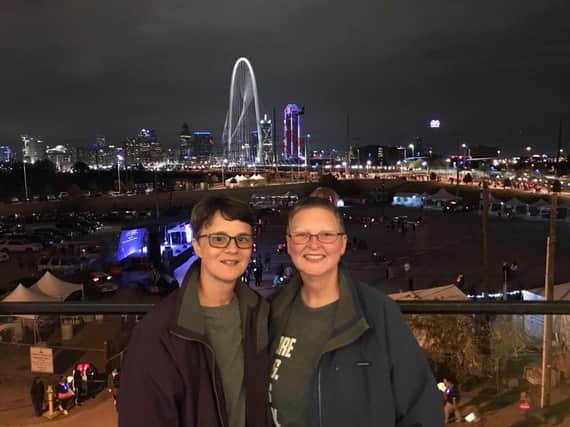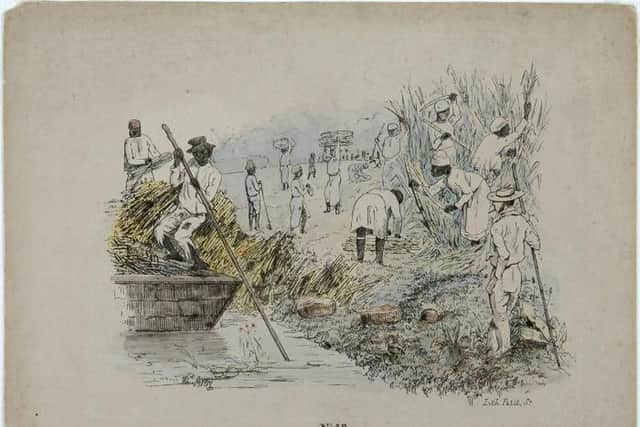"My great-great grandmother was a slave on a Scot's sugar plantation"


Seless Emanuels has spent 15 years researching her family history with her quest taking a dark turn into the 19th Century sugar plantations of Suriname in South America.
Ms Emanuels, 55, of Tampa, Florida, has now found that her ancestor, Christina Emanels, was one of around 700 slaves on the Waterloo plantation.
Advertisement
Hide AdAdvertisement
Hide AdThe plantation was owned by Sir James Balfour, from Carnock, Fife – recalled as a maniacal and power-hungry character – and inherited by his nephew Robert Kirke, of Burntisland, following his uncle’s death in 1841.


At Waterloo, Christina was given the slave name Cleopatra.
Little else is known about her, only that she was born in 1837, was 26 at the time of emancipation and had a daughter.
Ms Emanuels said she had been angered that so much information was available on Sir James and his nephew, who went on to build imposing Greenmount House and tropical garden, near Burntisland, with the compensation he received for loss of slaves following emancipation.
By contrast, Christina was reduced to a few lines in a slave register.
Ms Emanuels said: “You can Google the Balfour and Kirke's family and find all kinds of information, but type in Christina Cleopatra Emanels and the only information is the slave registry.
“Part of me wants to fly over to Scotland to visit the graves of the Balfours and Kirkes. It would be the only connection I would have to my great great grandmother.
"We certainly don't know what happened to her let alone where she may be buried, but the Balfour and Kirke's legacy lives on.
"It really disgusts me to imagine what she and the rest went through and that the Scots profited. To me, all they saw was a business and not human sacrifice.”
Advertisement
Hide AdAdvertisement
Hide AdMs Emanuels added to the story of her great-great grandmother after reading a story in The Scotsman which documented a visit to Suriname by two researchers into Scots and slavery, Dr David Alston and Michael Hopcroft.
Dr Alston and Mr Hopcroft found the eerie remnants of the Waterloo plantation along with Balfour’s tomb.
Suriname was occupied by the British in the late 18th Century before being handed back to the Dutch and up to half of the plantations are believed to have been owned by Scots at one time.
Ms Emanuels, whose father’s family line was rooted in Suriname and whose mother is Dutch, said she had no information as to how her great-great grandmother ended up being a slave or what happened to her after the Dutch abolished emancipation in 1863.
It is known that Christina had a daughter, Frances Petronella with three other Emanels also listed at the plantation.
She said the discovery of her great-great grandmother’s story had unleashed "so many levels of emotion”.
She said: “There is anger that the owners profited from and had no compassion outside of themselves. There is a sadness for what my ancestors, and others, endured over those years. And a emptiness of not knowing what really happened to my family members.”